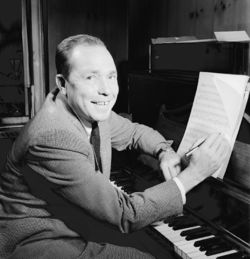| 19th Academy Awards | |
|---|---|
 Official pamphlet cover | |
| Date | March 13, 1947 |
| Site | Shrine Auditorium, Los Angeles, California, USA |
| Hosted by | Jack Benny |
| Highlights | |
| Best Picture | The Best Years of Our Lives |
| Most awards | The Best Years of Our Lives (7) |
| Most nominations | The Best Years of Our Lives (8) |
The 19th Academy Awards were held on March 13, 1947, honoring the films of 1946. The top awards portion of the ceremony was hosted by Jack Benny.
Contents
- Winners and nominees
- Awards
- Special Awards
- Irving G. Thalberg Memorial Award
- Presenters and performers
- Presenters
- Performers
- Multiple nominations and awards
- See also
- References
The Best Years of Our Lives won seven of its eight nominations, including Best Picture, Best Director, and both male acting Oscars. The Academy awarded Harold Russell—a World War II veteran who had lost both hands in the war—an Honorary Academy Award for "bringing hope and courage to his fellow veterans" for his role as Homer Parrish, believing that, as a non-actor, he would not win the Best Supporting Actor award for which he was nominated. Russell also won the competitive award, making him the only person in Academy history to receive two Oscars for the same performance.
When Olivia de Havilland won the Best Actress Oscar, her sister, Joan Fontaine, attempted to shake her hand, but she refused the handshake, saying "I don't know why she does that when she knows how I feel." [1]
This was the first time since the 2nd Academy Awards that every category had, at most, five nominations.












